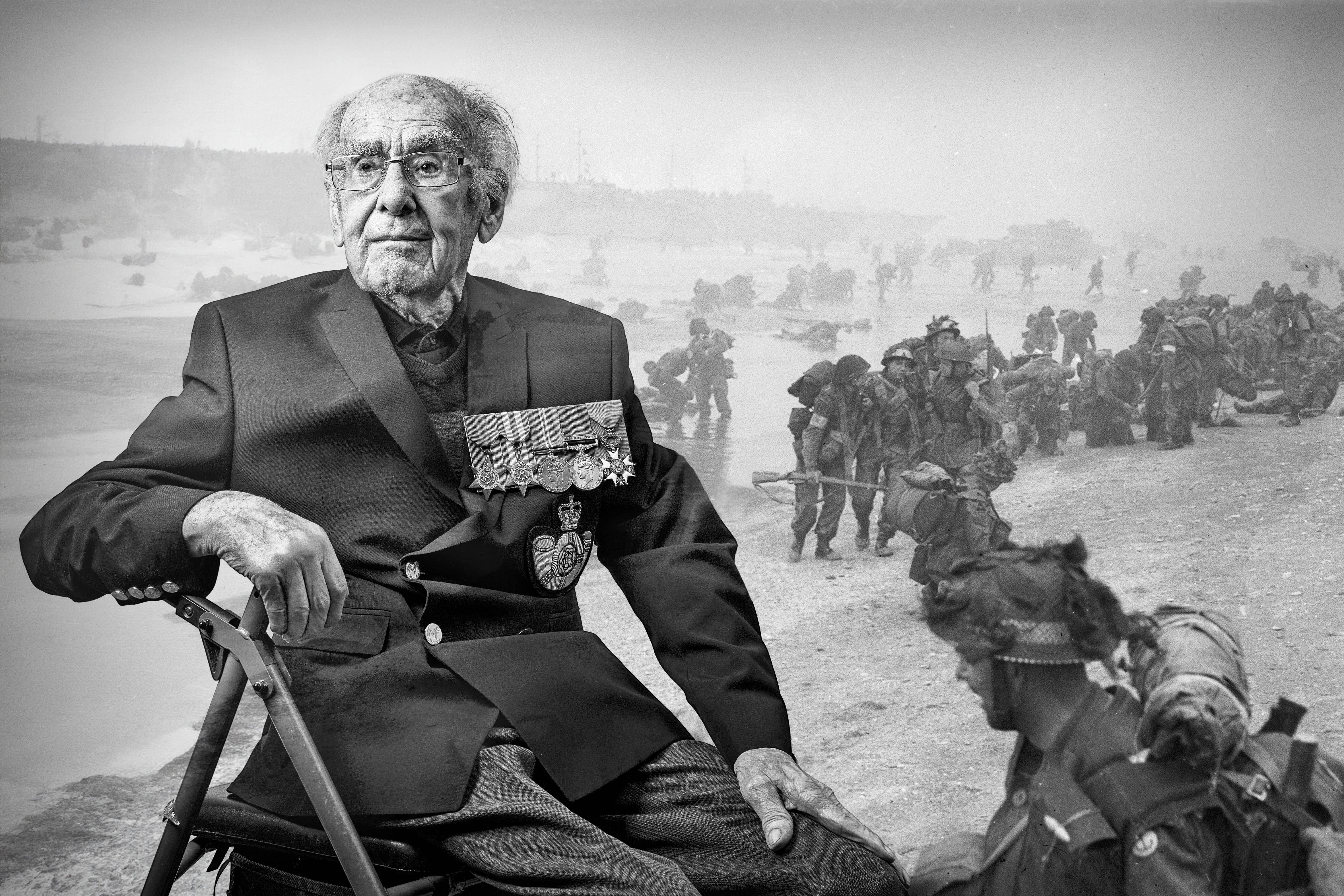Portraits of D-Day veterans revealed ahead of 80th anniversary
The portraits have been overlaid on to photographs, taken on D-Day or during the Second World War.

Your support helps us to tell the story
From reproductive rights to climate change to Big Tech, The Independent is on the ground when the story is developing. Whether it's investigating the financials of Elon Musk's pro-Trump PAC or producing our latest documentary, 'The A Word', which shines a light on the American women fighting for reproductive rights, we know how important it is to parse out the facts from the messaging.
At such a critical moment in US history, we need reporters on the ground. Your donation allows us to keep sending journalists to speak to both sides of the story.
The Independent is trusted by Americans across the entire political spectrum. And unlike many other quality news outlets, we choose not to lock Americans out of our reporting and analysis with paywalls. We believe quality journalism should be available to everyone, paid for by those who can afford it.
Your support makes all the difference.Moving portraits of blind and vision-impaired D-Day veterans will go on show to mark the 80th anniversary of the landings.
The portraits capture 16 veterans who served in Normandy and are beneficiaries of Blind Veterans UK, the national charity for vision-impaired ex-servicemen and women.
Seven of the portraits are featured in a special exhibition at the National Army Museum in London until June 9.
Six of the portraits will also be displayed at the new Winston Churchill Centre in Normandy, which will open on Thursday June 6, the 80th anniversary of D-Day.
The veterans’ portraits have been overlaid on to photographs, taken on D-Day or during the Second World War, to provide a “glimpse of what they would have experienced”.
One of the veterans is Harry Howorth, of the King’s Shropshire Light Infantry, who landed on Sword Beach during the first wave of D-Day, aged just 22.
Mr Howorth nearly drowned when his landing craft’s ramp dug into the seabed, pulling him underwater until someone rescued him.
His battalion destroyed a German gun battery, which helped secure the beach.
In a brochure produced by the charity for the anniversary, he said: “You never forget. You can even see some of the faces of your comrades who didn’t make it.”
The background of his portrait shows Allied troops landing on Sword beach at about 8.45am on D-Day.
Mr Howorth died on April 17 this year, aged 102.
Ken Hobbs, who died on April 16 aged 101, was a mechanic with the Royal Army Service Corps and waterproofed the lorries that drove on to Sword Beach at 7.30am.
Amid heavy fire he drove ashore and encountered a welcoming Frenchman at the top of the beach. Mr Hobbs was awarded the Legion d’Honneur, the highest French order of merit.
His portrait features a background showing lorries disembarking from a tank landing ship off the Normandy beaches in the evening of June 6 1944.
Mr Hobbs had said: “At 7.30am I drove on to Sword beach. It was very noisy. You had to do it and we just did it, that was it.
“It was horrible because the Germans were waiting for us, of course. I was one of the lucky ones that got through, but we lost a lot of people, a lot of men.”
John McOwan and and Harry Garthwaite, both 103, are the oldest men to be featured, while Peggy Harding, 102, is the sole woman.
Ms Harding, who at the time was a linguist for the Women’s Royal Naval Service, intercepting and translating German radio traffic, said: “Like hundreds of thousands of others, I played a minor part.
“At the time we thought we were doing something important, but of course nobody knew about this until the mid to late 70s.”
The photographer who teamed up with Blind Veterans UK to create the portraits, Richard Cannon, said: “I wanted to find a way to photograph these veterans that not only encapsulated their time during D-Day but also showed that they have lived long and full lives.
“So I started to think of a way to transport who they are now to the history of what happened 80 years ago.
“I’m extremely proud to have created strong, engaging portraits of these men and women who defended our country with such courage.”
Chief executive of Blind Veterans UK, Adrian Bell, said: “When talking to our veterans about their experience of D-Day, many often dismiss or trivialise as unimportant the part they played. Many say that they were no more than a small cog in a huge enterprise.
“However, when we take a step back and consider the scale and ultimate success of the operation, it could not have succeeded without such commitment from so many people playing their part.
“Here at Blind Veterans UK we salute them all and are proud to be here to give them the support they need to live independent and fulfilling lives after sight loss.”